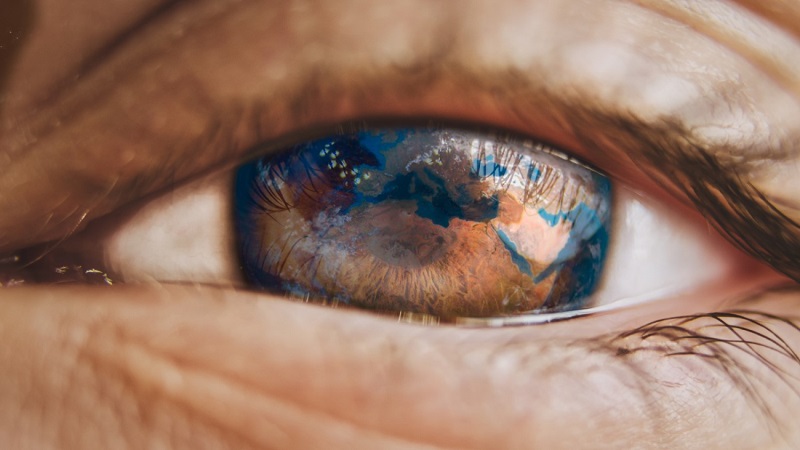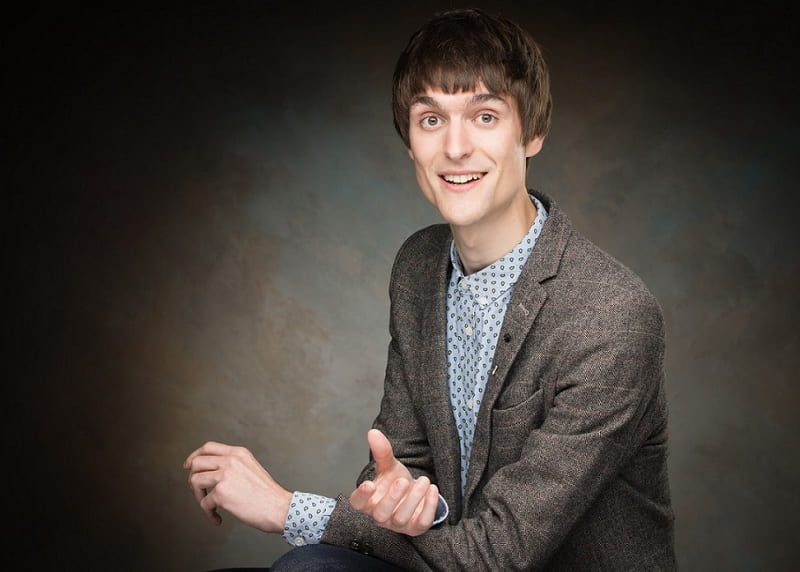
As leaders from all over the world come together in Glasgow at the end of this month for COP26, the Cabot Institute for the Environment asks key environmentalists, what do we need to see happen at COP26 that we haven’t seen before? (more…)
For the latest updates from your alumni community

As leaders from all over the world come together in Glasgow at the end of this month for COP26, the Cabot Institute for the Environment asks key environmentalists, what do we need to see happen at COP26 that we haven’t seen before? (more…)
In 2019, co-founders Dr Imke Sittel (PhD 2017) and Dr David Benito-Alifonso set up Glaia – an environmentally conscious startup which is on a mission to reduce the carbon footprint of agricultural food production. The revolutionary technology behind Glaia, which Imke and David developed at the University of Bristol, uses nanomaterial-based solutions to allow plants to harvest light more efficiently. By increasing crop yields and lowering emissions, this forward-thinking startup could play a pivotal role in tackling climate change and ensuring food security in future years.
We spoke to Dr Imke Sittel to find out more about startup life and to hear her fond memories of her time at the University.
For over 12 years Dr John Reeks has been a part of the University of Bristol: first as an MA student, then as a PhD researcher and now as a lecturer in the Department of History. Here he tells us more about what makes the University such a special place for him.

Researchers, businesses, government and diverse communities must come together to proactively shape our digital future, say Professors Susan Halford and Dimitra Simeonidou, Co-Directors of the University’s Bristol Digital Futures Institute (BDFI).
The BDFI is led by Professor Susan Halford (School of Sociology, Politics and International Studies) and Professor Dimitra Simeonidou (Department of Electrical and Electronic Engineering). For the past decade Professor Halford’s work has focused on the interface between social and computational sciences, while Professor Simeonidou specialises in high-performance networks and future internet research. This complementary expertise feeds into the BDFI, which aims to transform the way we create, utilise and evaluate new digital technologies to benefit our society now and in the future. (more…)
COVID-19: Discovery of a druggable pocket in the SARS-CoV-2 spike protein
When husband-and-wife dynamic duo Professors Imre Berger (Max Planck-Bristol Centre for Minimal Biology) and Christiane Schaffitzel (School of Biochemistry) found themselves in lockdown in March 2020, unable to teach or run their normal workday at the University of Bristol, they did not hang up their lab coats. Instead (while complying with all necessary safety measures) they assembled a cohort of volunteers from their teams and set to work to do what they could to stop COVID-19 in its tracks, as part of the bigger Bristol University COVID-19 Emergency Research Group (UNCOVER). (more…)

COVID-19: Looking at different ways in which aerosol research can support the fight against COVID-19
As Director of the EPSRC Centre for Doctoral Training in Aerosol Science and the Bristol Aerosol Research Centre, Professor Jonathan Reid’s approach to tackling COVID-19 is, naturally, focused on aerosols. ‘Aerosols’ is a term that is used to refer to a collection of particles that are airborne and with sizes typically smaller than the diameter of a human hair. When we speak, breathe, cough or even sing, we generate hundreds of these particles that someone else could breathe in, transmitting the virus responsible for COVID-19.
A key piece of work from Professor Reid has shown that there is significantly less risk of COVID-19 transmission from anaesthesia procedures than was previously thought. This is an important finding at a time when many operations and NHS procedures have been postponed or cancelled, causing problems for patients in the UK.
Since the outset of the COVID-19 pandemic, there has been much debate about the danger to hospital staff from anaesthetic procedures. Concerns include that inserting a tube in the patient’s airway (intubation) before surgery or removing it at the end (extubation) may produce a fine mist of small aerosol particles and spread the COVID-19 virus to nearby staff.
COVID-19: Immune correlates of hyperinflammation and protective immunity in COVID-19
As we grapple with the nightmare scenario of a global pandemic, scientists around the world, including at Bristol, are diving into research around as many aspects of the COVID-19 virus as possible. One of the key findings to date is that in serious cases the body’s immune system goes into ‘overdrive’. Evidence accumulated so far suggests that the life-threatening COVID-19 complications are related to immune dysregulation, arising because of viral infection in the form of a hyperinflammatory syndrome accompanied by increased plasma levels of pro-inflammatory cytokines.(1-2)
Immunologist Dr Laura Rivino is conducting a pilot study that should provide us with a clearer understanding of the immune response underlying both the immunopathology and immune protection in patients with COVID-19. Her team’s hypothesis is that it would be beneficial to use a combination of strategies where the anti-inflammatory response can be blocked while simultaneously boosting the anti-viral immune response, with an expectation of ensuring viral clearance and establishment of immunological memory.
COVID-19: Black lives in lockdown – the pandemic experiences of people with Black, Asian and minority ethnicities living in the South West
For many people, the reports that COVID-19 was disproportionately affecting those in Black, Asian and minority ethnic communities was news to them. For Dr Saffron Karlsen, however, it was not. As Associate Professor in Sociology and a specialist in inequalities in health research, Dr Karlsen has spent over 20 years looking at how structural and societal inequalities hamper health and healthcare for those in ethnic minority groups. (more…)
 Tim Gregory (PhD 2020) is a man of many talents. At any moment you might find him teaching children through BBC Bitesize revision classes, presenting BBC4’s The Sky at Night, or hosting online stargazing events for Bristol alumni.
Tim Gregory (PhD 2020) is a man of many talents. At any moment you might find him teaching children through BBC Bitesize revision classes, presenting BBC4’s The Sky at Night, or hosting online stargazing events for Bristol alumni.
Since graduating from the University of Bristol last year with a PhD in Cosmochemistry, Tim has worked as a postdoctoral research associate at the British Geological Survey, published his first book Meteorite: The Stones From Outer Space That Made Our World (2020), and started a new job as a nuclear chemist. He’s achieved an astonishing amount, no doubt helped along the way by his infectious enthusiasm and passion for his subject.
Olivia Kinsman was able to take up a place at the University of Bristol this year having been awarded the Keil Scholarship, which supports PhD students in the Department of History.
I can remember taking my A-levels and knowing how much I wanted to go to university. Even then I knew that eventually I wanted to do a PhD. I’m from a single parent household with a low income and there are lots of us in the family, so growing up was really challenging at times. I’ve always been determined that I wasn’t going to let my background or finances get in the way of what I wanted to do – even if that meant saving up until I was 50 to do my PhD. For me, applying for scholarships and being proactive about reaching out for financial assistance has been really important.